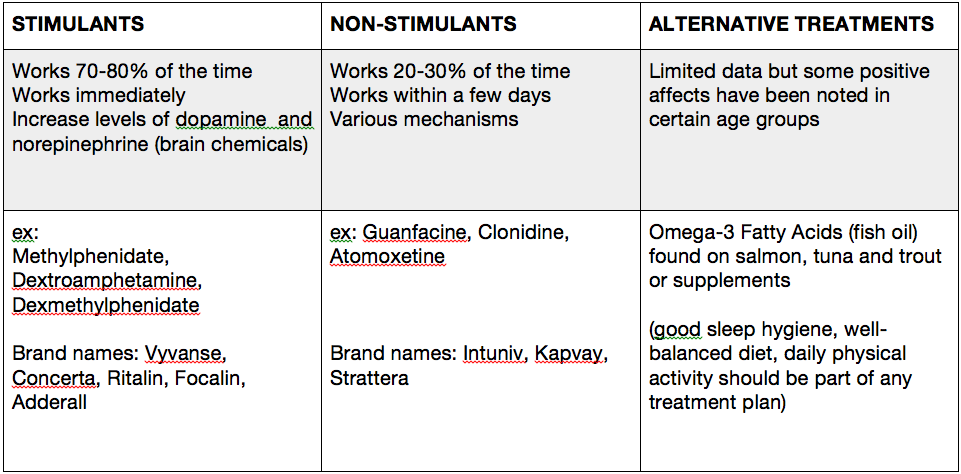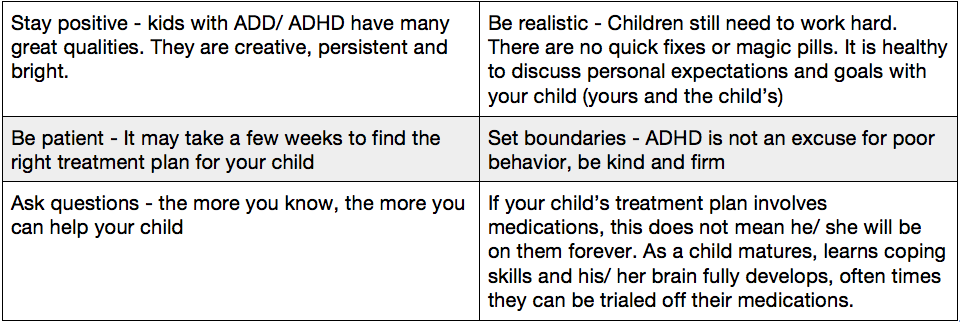What is ADHD?
ADD or ADHD is a chronic disorder where there is an imbalance within the nervous system. This can interfere with a child’s development, functioning and relationships. It can occur in children or adults. It can be disruptive but is a manageable condition. There is nothing “ wrong” with your child. There is nothing that you did to cause ADHD in your child. Their brain just works differently. Individuals can struggle with the following:

note: not every child has hyperactivity
What ADHD is NOT.
It is not laziness, poor parenting or due to a high sugar diet. It is not contagious. There is no cure but many options for treatment.
First Steps?
The first step in evaluating a child is to discuss your concerns with your pediatrician. It is important to be sure that there are no hearing or vision problems. Also, your pediatrician will need to rule out anxiety which can look like ADD/ADHD. Is your child sleeping enough? Adequate sleep is crucial when helping children who are inattentive because an unrested child can exhibit multiple behavioral issues. Make sure that your child is getting daily physical activity and has a well-balanced diet. Your pediatrician will ask lots of questions and use a screening tool to document the challenges your child is having at home and at school. Your child may also be tested for a learning disability.
Treatment Options?
Not every child will need to be medicated for his/ her ADHD. Because it is a spectrum disorder with mild —>moderate —>severe symptoms, it will depend on your child, the family’s comfort level and the affect on his/ her functioning. All children should have a therapist to tackle behavioral issues and teach organizational skills. This can also help parents with coping skills and discipline at home. This is important for the optimal treatment of ADHD/ ADD and should be started early on once the diagnosis is made. School support is also crucial as ADD/ ADHD can affect academic performance (although not always very obvious) and relationships with peers. If medication is started, keep in mind that close follow up will be needed. Here are the various types of medications used to treat ADHD/ ADD.

Pearls for Parents:



